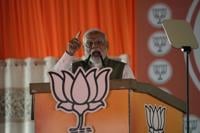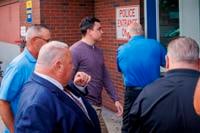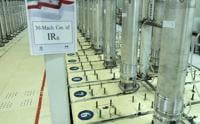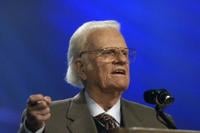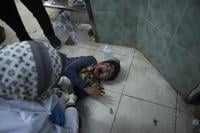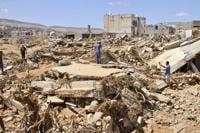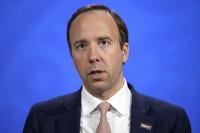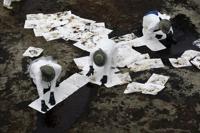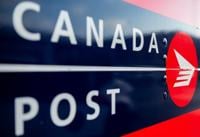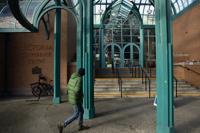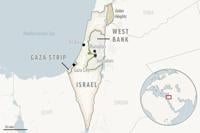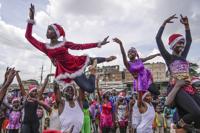SRINAGAR, India (AP) — India’s Prime Minister Narendra Modi visited the main city in Himalayan Kashmir on Thursday to campaign for his party in the local election, the first such vote since New Delhi stripped the disputed region’s semi-autonomy in 2019.
Modi’s visit to Srinagar city in the Kashmir Valley — the heartland of decades of anti-India rebellion — comes amid strong public opposition there to New Delhi’s changes five years back. That move revoked the region’s semi-autonomous status, annulled its separate constitution, downgraded and split the former state into two centrally governed union territories— Ladakh and Jammu-Kashmir — and removed inherited protections on land and jobs.
The region has since remained on edge with .
Authorities laid razor wires and erected road checkpoints to close the roads leading to the venue of Modi’s election rally in Srinagar’s main commercial center. Armed paramilitary troops and police in flak jackets patrolled the area, snipers and sharpshooters were positioned atop buildings near the venue.
The multistage election will allow Kashmir to have its own truncated government and a local legislature, called an assembly, instead of remaining under New Delhi’s direct rule.
However, there will be from New Delhi to the local assembly as Kashmir will continue to be a “Union Territory” — directly controlled by the federal government — with India’s Parliament remaining its main legislator. Kashmir’s statehood must be restored for the new government to have powers similar to other states of India.
“We have said in the parliament that we will restore (the region’s) statehood. Only BJP will fulfill this commitment,” Modi said to a cheering crowd at the rally while referring to his Bharatiya Janata Party, without specifying any timeline for the return of statehood.
He called the ongoing election the festival of democracy in the region. “Jammu and Kashmir is strengthening the democracy of India and I congratulate the people for this,” he said.
Kashmir has been at the heart of a conflict between India and Pakistan after British rule of the subcontinent ended in 1947 with the creation of the two rival countries. Both administer part of it but claim the territory in its entirety.
Militants in the Indian-controlled portion of Kashmir have been fighting New Delhi’s rule since 1989. Many Muslim Kashmiris support the rebels’ goal of uniting the territory, either under Pakistani rule or as an independent country.
India insists the insurgency is Pakistan-sponsored terrorism, a charge Islamabad denies. Tens of thousands of people have been killed in the fighting, which many Kashmiri Muslims consider a legitimate freedom struggle.
Kashmir has remained an important part of a and his party colleagues in their outreach to the Hindu support base in India where few issues reach as broad a consensus as that the region must remain a part of the country at any cost.
Modi’s government has repeatedly said the changes would spur investment, bring more development and root out separatism in Kashmir. But critics and many Kashmiris fear this could
“It seemed odd to claim that this place is celebrating democracy," said Siddiq Wahid, historian and former vice chancellor of a university in Kashmir. "For the past five years, it has been led by an unelected administration unfamiliar with the region’s idiosyncrasies, it has been dismantled as a state, and unspecified executive powers of its Chief Minister and assembly transferred” to New Delhi appointed administrators, he added.
“New Delhi's centralization of power has increased public frustration over political stasis here,” Wahid said.
Thursday’s visit was Modi’s second to the Muslim-majority region to campaign for his party candidates in the ongoing election. Voting began on Wednesday, with a in the first phase.
The vote is the first in a decade, and the first since his Hindu nationalist government’s 2019 move. Kashmir’s pro-India political parties have promised to fight to undo those changes.
Last week, Modi addressed a similar rally in southern Doda district.
The second and third phases of the are scheduled for Sept. 25 and Oct. 1. The process is staggered for logistical reasons and to allow troops to move around to stop potential violence in the Himalayan region. Votes will be counted on Oct. 8, with results expected that day.
At the rally in Srinagar, Modi launched a scathing attack on India’s main opposition Congress party and the regional parties, the ��ɫtv Conference and the Peoples Democratic Party, calling them “three families” responsible for “destruction” and bringing “nothing but chaos and fear” to the region.
“I am sincerely working towards restoring peace here,” he said.
India’s ruling BJP has a strong political base in the region’s Hindu-dominated areas of Jammu that largely favor the 2019 changes and has won multiple seats from there in the past elections. But it is weak in the Kashmir Valley where the BJP has never won a seat.
The party has fielded only 19 candidates for the 47 seats in the valley while it is contesting all 43 seats in Jammu.
Modi’s party is not officially aligned with any local group, but many politicians believe it is tacitly supporting some parties and independent candidates in the Kashmir Valley who privately agree with it.
The region’s main pro-India political parties accused the BJP of trying to manipulate the election and fragment the valley’s vote through independents. About 43% of 503 candidates contesting in the Kashmir Valley are independents, in contrast to 35% in Jammu.


